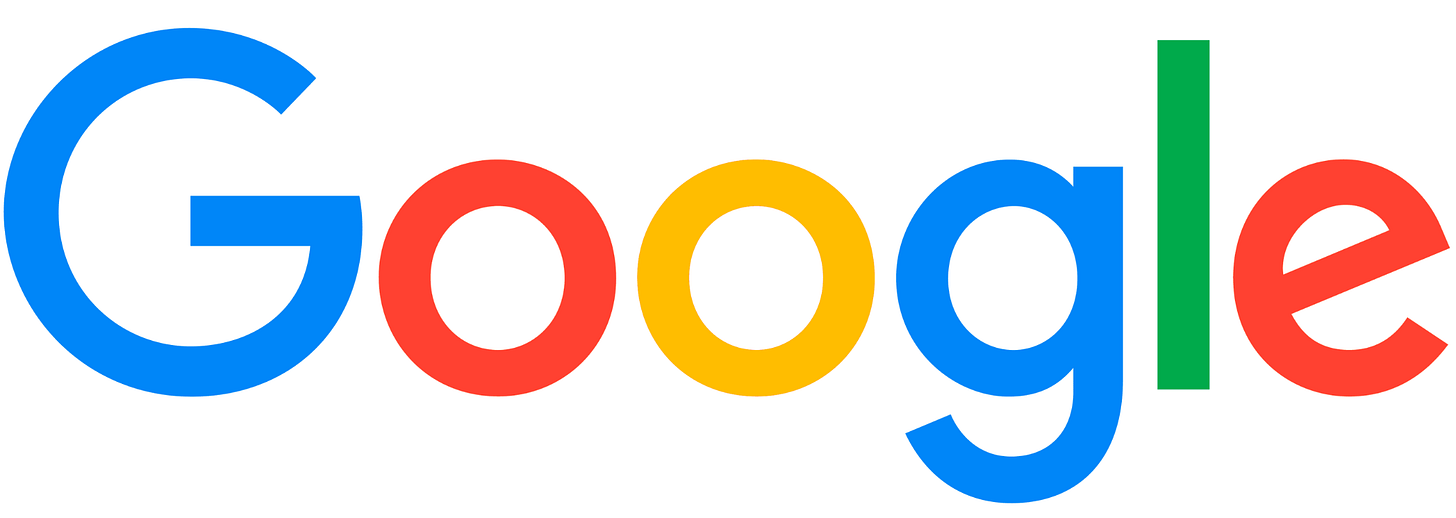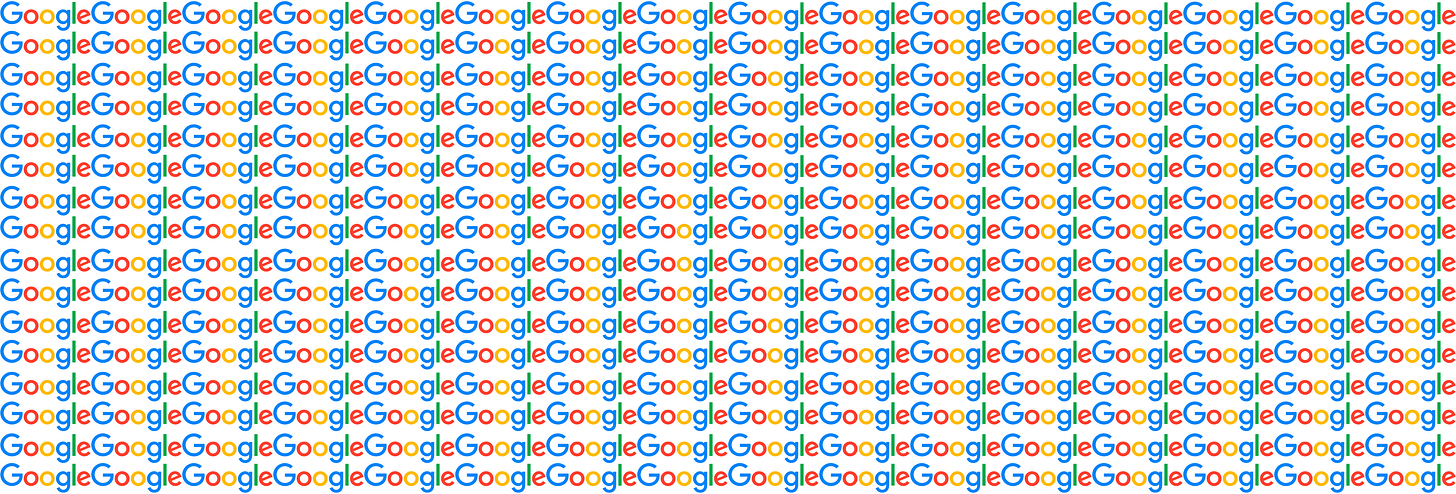Mapping the walls of the garden
How tech companies invite us in, then lock the gates. Plus: taking stock of my own reliance on Google.
In tech, a “walled garden” refers to a system where one single service provider has total control over the programs, environment, and access to information. Wandering within a walled garden, you may feel free to do whatever you want – maybe watch the birds, or pick flowers, or nap on a bench – but every bird, flower, and bench has been placed there for you by some outside ‘gardener,’ and nothing gets in or out without their say-so.
Apple is the iconic example of a walled garden. With their tight lock on their proprietary software and hardware, Apple products all work well amongst each other, but sometimes struggle to communicate with the outside world.1 iPhones run only on Apple’s iOS operating system, and only run apps that are built for that system. There are of course millions of apps to choose from, and a user may feel overwhelmed with choice, but every app is only available to them after it gets approved by Apple’s in-house app review team, then downloaded from Apple’s App Store.
Many consumer electronics are walled gardens: printers that refuse to print if you try to use an off-brand ink cartridge, video game consoles that lock basic features like online play behind a paywall. Or social media: your ability to learn about local events, to sell things online, even to communicate with specific friends, may be locked away behind Meta’s garden gates.
At first, Google feels like an odd fit for a walled garden.
After all, Google’s hallmark service, Google Search, is literally designed to help you reach other websites. Theoretically, the successful result of any Google search is that you leave Google.
Putting aside that you never really leave Google-the-company (through Google Ads, Google/Alphabet still controls about half of the online advertising market, and countless websites have integrated Google services or run on their worldwide Cloud Platform), increasingly, you never even have to leave Google-the-website.
Starting as just a humble internet search engine, Google expands fast. It adds specialized searches for images, videos, products, news, books, map locations. It will even curate and interpret the content for you: let Google Maps handle the directions, make Google News your landing page.
The search results page changes too: instant answers are the new thing. Above all those pesky external links, Google provides its own translation services, unit conversions, dictionary definitions, stock prices, and weather forecasts. Soon, the top of the search results page is dominated by Knowledge Panels (info boxes), rich snippets (copy-and-pasted quotes from other websites), and now the AI Overview, which offers fully formed answers to your questions, right on Google.
Google becomes more than a search engine.
Gmail is one of its first offerings, and it’s a hit. Millions sign up, getting a permanent Google account along with it, which quickly serves as a gateway to other services, like Google Calendar and Google Drive. Combined with the Google Docs suite, you now can get an entire day’s work done without ever leaving Google.2
You’re using so much Google that you should probably just get a Google phone, and thankfully, there’s lots to choose from. The Android operating system (OS), wholly owned by Google, is the default phone OS for Samsung, Motorola, Huawei, and a dozen other phone companies. Google has made Android open-source and free to use, which is why so many phone companies have adopted it, and along with it they’ve adopted a Google-first system, generally coming pre-installed with Google apps and using the Google Play Store for downloads, where Google takes on the Apple role of picking which apps can and can’t appear.3
Or maybe you go all in and get a Google Pixel phone. It syncs automatically with your Google account, meaning your contacts, messages, and phone backup are all stored within Google servers. Google Chrome is your phone’s default web browser, Google Calendar is your default calendar, Gmail is your default email app. Your photos are catalogued with Google Photos, before being uploaded automatically to your Google Drive cloud storage, where you can increase capacity with a paid Google One subscription (save that payment info so you can tap all your purchases with Google Pay). Your Pixel also comes pre-loaded with Google Assistant (and now Google Gemini), who helpfully answer Google Search-ish questions without even offering an external link.
Your home now naturally fills with Google. Your phone can cast to your TV’s Google Chromecast for your entertainment needs, where the Google Play Store has movies and tv shows to rent and music to stream, and the Google Home app seamlessly controls all your Google Nest family of products: your new Bluetooth speaker (with Gemini on board), wifi hub, smart thermometer, video doorbell, security cameras, and the smart lock on your front door.
You live in a garden where you built the walls yourself, brick by brick.
My first step in de-googling my life was to take stock of my own walled garden.
The story up above isn’t quite autobiographical, but it’s closer than I’d like to admit. I have spent years implicitly trusting this company - or, at least, using it and not thinking too hard about it.
I created a list of all the Google services and devices I was using, that I would now have to find alternatives for. Here is the original list:
Google Search
Google Chrome (as web browser)
Google Chrome (as password manager)
Google Drive (for general storage)
Google Drive (for photo backup)
Google Docs (as a word processor)
Google Docs (for editing/collaboration tools – professional and personal projects)
Google Maps
Google Calendar
Google Tasks
Google Photos
Gmail (as email app)
Gmail (as email client)
Google Keep
Google Pixel
Google Pixel Buds
Google Chromecast
Google Chromebook
Three things worth noting about this list: (a) it’s distressingly long, (b) it contains things that will be complicated and expensive to replace, like my phone and laptop, and (c) it’s still woefully incomplete. The more I explore this problem, the more I realize just how many different roles Google has silently filled in my life, often without me even realizing it.
An example. One of the first steps I take in de-googling is to change to a different search engine (more on that in a future post), and within days I realize that, any time I need info about a local business, I just google it and it pops up with its address, phone number, hours of operation, etc. And because Google is such a dominant force, I can be fairly confident that even small mom-and-pop shops are keeping their Google Business Profile up to date. Do I need to find an alternate business directory now? Does the phone book still deliver??
I am quickly discovering just how complicated this process is going to be.
I imagine that, at the centre of Apple’s walled garden, there’s a big bronze memorial statue commemorating the lightning cable.
I’m focusing mostly on individuals in this post, but the walled garden problem can be even worse for small businesses, creators, and artists. Your business model, or your entire way of life, may depend on program workflows, advertising formulas, and social media algorithms over which you have zero control. And of course there are many more Google services to cater to these audiences: Google Ads, Google Analytics
In fairness to Google: because Google made Android open-source, it’s a much freer and less restrictive system than, for instance, Apple’s. Companies making Android devices can ‘tweak’ the OS to fit their needs, developers have more flexibility building apps, and users have an easier time installing non-approved apps, with a little effort. I could be cynical about this – being open-source is after all a selling point, and has helped place a Google-friendly OS and Google apps on literally billions of devices around the world – but it’s always better to be open than closed.








